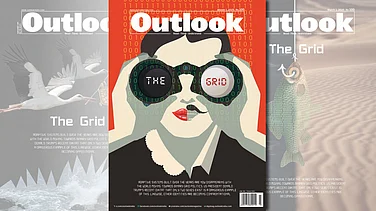I am a voracious reader. I even read roadsigns. Almost a decade ago, I read a little legend on a stop sign glowing red inan autumn night and so, years before everyone else, I knew the end was nigh forDelhi. What I had just read was an epitaph for a way of life.

That night, I was returning home after far too many months overseas. The verysmog of the airport road smelled pleasantly of home as my taxi coasted demurelyto a stop at a red traffic light.
"What’s the problem?" I asked the driver. By ancient custom, lights thatturn red in the wee hours of a Delhi night are to be jumped at over the ton.Prithviraj Chauhan set the trend while escaping from the famous swayamvar andhis fugitive hoofbeats still ring in our ears.
"No problem, RELAX," the driver said, settling back comfortably and breakingout the pan masala.
"Relax?" I barked in alarm.
"RELAX," he repeated calmly, pointing to the lights. The red light backlit alegend stencilled in capitals. ‘RELAX,’ it said. Alarm gave way to outrage.While I was away, behind my back, a perverted turncoat policeman had been goingaround the city with a stepladder and stencilling this tranquillising message onall the red lights, which are there to be jumped. Relax at a red light? Isnothing sacred?
Of course, much as we would like to believe it, our Delhi is not the creation ofswashbuckling Tomars and Chauhans. That’s a fairy tale fit for touristbrochures. Rajput, Turk, Afghan and Mughal are redundant history, shoulderedaside by the new conquerors of this city, who made space for themselves with thegood-natured pushiness of the frontier spirit. Which frontier? The North WestFrontier, of course, where the Frontier Mail used to come from. Pakistan, youknow.
Partition refugees created the present city of Delhi. They arrived with only theshirts on their backs and a fortune to rebuild. They were people in a hurry andtheir momentum still drives us to do the things that people from other citiesfind peculiar and even frightening about Dilliwalas. We never queue up likeother people because it’s a waste of time. We impatiently fight our way intobuses and trains. We eat standing up from handcarts in the streets, to savetime. We never drive in our lanes because we want to get ahead of everyone elsein every lane. And at night, we jump lights at the speed of sound.
Sorry, we used to jump lights. Now, the city wants citizens to RELAX. The policerun roadkill figures on an LED screen at the ITO intersection, like the ambienttemperature is displayed elsewhere. They lurk behind tree-trunks with radarspeed guns. They hunt down speeders—like mad dogs—in interceptor cars. Thefrontier pioneers have been sidestepped and overtaken by freshimmigrants—poignant Bengalis, tormented Malayalees, long-headed Biharis andTamils who rise before dawn. With them, they have brought the vices ofgentility, patience and common sense.
The city has changed beyond salvage, and nothing is sacred any more.
This article originally appeared in Delhi City Limits, March 31, 2006
















